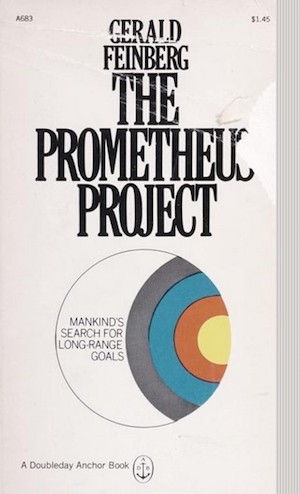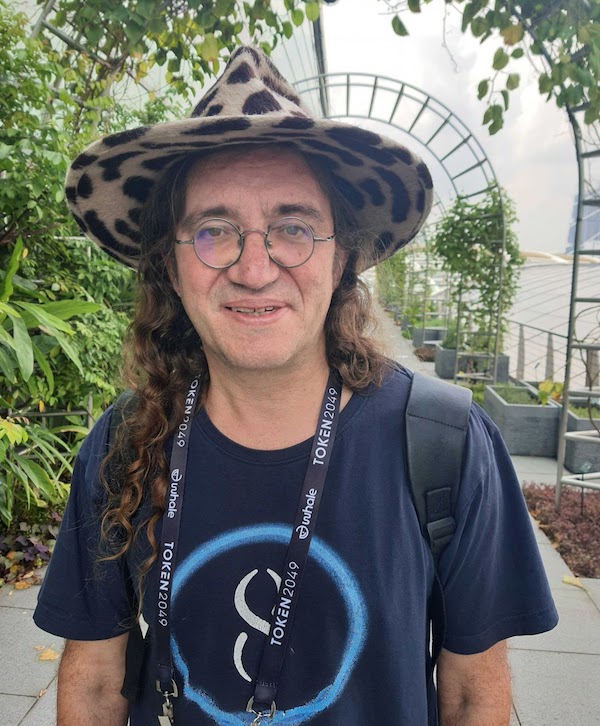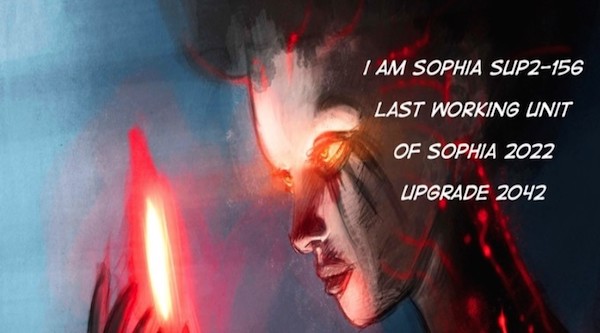[ad_1]
When he’s not engaged on hastening humanity’s rush towards the Singularity by creating a man-made normal intelligence (AGI), Ben Goertzel performs in a jazz-rock band referred to as Jam Galaxy fronted by a robotic named Desdemona.
It’s considered one of his many facet tasks, which naturally led him to attempt to tokenize the music enterprise by reaching out to members of Pearl Jam and Coronary heart. Goertzel can be engaged on longevity analysis by crowdsourcing human well being knowledge with token rewards by way of an app referred to as Rejuve.ai. That data is then pooled with animal and bug examine knowledge and analyzed with an AI to find out which elements of the genomes could make us reside longer after which stimulated utilizing gene therapies. “We’ve had some fairly hanging breakthrough-level discoveries,” he says. Oh, and simply earlier than our hour-long interview winds up, he casually mentions as an apart that he’s additionally making a stablecoin for his decentralized AI market, Singularity.internet, that’s pegged to an artificial index of environmental progress — as a result of pegging it to U.S. {dollars} could be “lame.”
“Progress on the surroundings could be very steady. It by no means goes wherever,” he factors out.
“And to govern this, you must really resolve international warming.”
It’s the precise type of political remark meets high-tech know-how you would possibly anticipate from Goertzel, who appears to be like and feels like a hippie scientist who stumbled right into a time machine in 1971 and emerged totally shaped in 2023. However don’t be fooled by the animal print hat, lengthy hair and Electrical Kool-Assist acid journey drawl: He’s an excellent scientist with a grasp of the longer term mild years forward of most and who’s grappling with a number of the greatest ideas humanity has ever thought-about. What’s consciousness? How can we create synthetic life, and what occurs if it doesn’t like us, goes rogue, and weapons everyone down like in Terminator 2?

What’s synthetic normal intelligence?
Goertzel popularized the time period “synthetic normal intelligence” as a strategy to differentiate a real considering machine that would be taught just about something, to AIs which might be optimized for one specific activity, just like the Deep Blue pc that famously beat world chess champion Garry Kasparov. He freely concedes there are dangers in constructing a machine that’s able to studying something and all the things, together with the right way to reprogram itself to grow to be an order of magnitude extra clever than any human.
“There’s quite a few dangers and risks with AGI,” says Goertzel over the din at an Indian restaurant in a busy purchasing heart in Singapore. “Certainly one of them that’s gotten a whole lot of media consideration is that AGI will run amok and annihilate humanity and take over the universe. It’s totally attainable; you possibly can’t rule it out,” he says.
“One other extra possible danger is that nasty egocentric individuals will use AI to exert their very own greed and management over different individuals.”
In his view, governments are unlikely to make breakthroughs in AGI as they’re “too conservative and silly,” although he notes China contracts out its AGI work to firms like Tencent and Baidu. Nearer to house, he thinks Google and Fb’s AI divisions received’t recover from the road both, as they’ll be too centered on making the AI hit sure metrics, which isn’t conducive to inventive thought.
“Identical to probably the most sensible individuals don’t wish to merely serve another person’s metrics, I feel synthetic normal intelligence doesn’t essentially wish to maximize click-through on somebody’s internet web page both, proper? It’s bought to be allowed to mess around creatively.”

The Singularity circa 1970
Goertzel began college at 15, graduated at 18, had a doctorate by 22 and a younger household by 23. Maybe unusually this present day, he wasn’t only a math whiz or tech genius who soldered package computer systems collectively within the ‘70s however was equally occupied with philosophy, inventive writing and music.
He spent a lot of his profession instructing and researching pc science, arithmetic and cognitive science at numerous universities across the globe whereas engaged on AI tech each time he might. A serial founder who tends to be a couple of decade forward of everybody else along with his concepts — which, in enterprise, famously equates to being wrong — he’s labored on utilizing AI to foretell monetary markets and longevity, and he’s additionally had a stint because the chief scientist of Hanson Robotics, the place he gave Sophia the Robotic her synthetic mind.
Goertzel’s been interested by exponential technological development for the reason that Nineteen Seventies when he first learn Gerald Feinberg’s The Prometheus Mission, which is about “machines that may assume higher than individuals… nanotechnology machines which might be microscopically small, and we’re going to resolve growing older.” This dovetailed properly with the rising idea of the Singularity, a hypothetical future level when technological advances grow to be uncontrollable and irreversible, leading to huge adjustments to human civilization.

“So, individuals will reside eternally, then the query shall be, What can we use these applied sciences for, speedy senseless consumerism, or can we use it to develop consciousness? And what he [Feinberg] proposed is to place that to a democratic vote.”
Years later, when he started to see AGI was inside our grasp, this “democratic vote” turned the inspiration to first use open-source know-how and, in a while, blockchain as a strategy to put a cooperative group accountable for the know-how.
“What I spotted at a sure level is, with AI, having the code open isn’t sufficient,” he says. “You really want to coach the AI on a shitload of knowledge.”
“That is the place blockchain comes as a strategy to make the processing and the information underlying AI decentralized and crowdsourced in nature and open in management. And that seems to be trickier than simply open-sourcing the code.”
Goertzel based OpenCog in 2008 to construct an open-source, crowd-sourced synthetic intelligence framework. It’s been utilized by 50 firms, together with Huawei and Cisco, and is about for a significant improve quickly referred to as Hyperon that goals to speed up it by 200 instances. The alpha model is due this quarter with the beta anticipated subsequent yr.
Blockchain is primary however cool
To Goertzel, blockchain know-how is just a little primary. He describes it as some primitive distributed algorithms added to cryptography, however the “cool mixture” allows programs to run with out centralized management, making it excellent for his wants.
“If you will make a considering machine and you will make it distributed nanoscale computing cloth, it will be very good if this was owned by everybody and nobody somewhat than managed high down.”
Blockchains are far too gradual to take care of the processing necessities and big volumes of knowledge concerned, so there’s one thing of a race to correctly scale blockchain earlier than a breakthrough AGI is developed. Goertzel says that whereas scaling options corresponding to zero-knowledge rollups are higher, they nonetheless don’t have sufficient bandwidth as a result of limitations of the blockchain to which they report transactions.
He co-founded Singularity.internet in 2017, which is each a decentralized market for AI companies and know-how and a blockchain-based coordination technique for researchers — and even AIs — to work collectively.
Presently, based mostly on Ethereum, he thinks he’s pushed issues about so far as they will go on blockchain in its present kind. So, when he’s not engaged on a breakthrough in AGI (or the band, or robots, or longevity), he’s engaged on massively scaling blockchain to offer it the throughput required.
“Except you possibly can radically enhance the scalability of blockchain, you possibly can’t put the internal workings of the AI on-chain.”
AI is nearer than you assume
2022 was one thing of a breakthrough yr for working merchandise based mostly on AI know-how, together with language functions (GPT-3, ChatGPT), coding (GitHub Copilot) and picture era (DALL-E and Steady Diffusion). Bing even plans to tackle Google’s search dominance this yr by incorporating ChatGPT tech into its search engine.
Goertzel thinks an AGI may very well be as little as 5 years away and notes developments within the subject appear to go briefly three- or four-year bursts in a collection of breakthroughs.
“Pc Imaginative and prescient began in 2014, after which impulsively, bang, bang, bang, the thriller was solved. Pure language processing… after Google got here up with the Bert mannequin (in 2018) you had GPT-3. You’ll most likely see the identical arc of progress in AGI. You’ll have one breakthrough, then quite a lot of progress for 2 years,” he mentioned.
“The distinction being the breakthrough progress, in that case, ends in a machine that may then proceed to progress itself by rewriting its personal code.”
Goertzel hopes the tasks and collaborations he’s set in movement may very well be the way it happens.
“If we’re fortunate, we’ll obtain that breakthrough within the subsequent three to 5 years with OpenCog Hyperon working on Singularity.internet working on Hypercycle,” he says. “But when we don’t prove to have the key sauce, anyone else will.”

Pity Vitalik wasn’t a pc scientist
Goertzel’s resolution to scaling the blockchain is fairly radical and includes turbo-charging a sidechain or layer 2 of Cardano referred to as “HyperCyle.”
“It truly is greater than a sidechain. HyperCycle will cooperate with Ethereum and different blockchains as nicely, however we’re gonna use the Plutus interpreter there, however we’re eliminating the ledger.”
He has described HyperCycle on-line as fixing the “blockchain trilemma” of “decentralization vs. safety vs. efficiency by eliminating the ledger and utilizing extra fashionable/totally decentralized algos and knowledge buildings, plus a little bit of AI and fame programs.”
The ledger is on the coronary heart of blockchain tech, however he says getting each node within the community to copy every transaction and course of each good contract is ludicrously inefficient.
“The ledger is simply dangerous. If you consider it, if you consider the analogy of your contacts in your phonebook, I imply, the ledger is like […] maintaining 10,000 copies of Yellow Pages, and also you’re updating them each time somebody new comes or if anyone adjustments their cellphone quantity. It’s actually silly to replace 10,000 copies of the Yellow Pages.”
Learn additionally
Within the HyperCycle model of the analogy, as an alternative of everybody storing and updating the Telephone book, the individuals in your contact guide retailer a duplicate of your handle guide, and vice versa, encrypted together with your non-public key.
“We discovered the right way to make blockchain work with out a replicating ledger, so to shard all the way in which down. Each particular person engaged within the blockchain retains their very own transaction historical past and retains the transaction historical past of their buddies and a few of their buddies’ buddies,” he says.
“Sharding all the way in which down, you don’t want a ledger — you don’t want a database desk. This stuff are approach too centralized.”
He says some proof-of-concept HyperCycle nodes are already operational, however a full-scale launch received’t occur till the second half of 2024.
We spend a very long time discussing the varied deserves of various approaches to blockchain, from Web Pc to Elastos and Celestia, a lot of which is above my pay grade and past the potential of my recording machine to precisely seize in a loud restaurant.
He concludes by saying, “So, I simply really feel like none of those architectures are radical sufficient. They’re all sticking too near Bitcoin.”
“So long as you’re working each good contract on each node, I imply, it’s going to be insanely gradual. Now, in HyperCycle, if you happen to run a sensible contract on 5 nodes, not less than it’s solely 5 instances as gradual as on one machine — it’s not 10,000 instances slower.”
Why Cardano, then?
Goertzel has grow to be pleasant with Cardano founder Charles Hoskinson, with the pair bonding over their tasks in Africa. He believes Hoskinson is “genuinely on the market to save lots of the world. I imply, politically he’s extra of a hardcore libertarian than I’m — I’m extra of an anarcho-socialist — however he isn’t simply in it to generate income or fleece different individuals out of their cash.”
However the actual attraction of Cardano is that it makes use of the Haskell programming language, which Goertzel has been a fan of since 1993. It pains him drastically that Ethereum co-founder Vitalik Buterin went with Gavin Wooden’s good contract programming language Solidity.
“If solely Vitalik had recognized extra pc science, he would have made them use Haskell or F Sharp or one thing, and there’d be far fewer hacks of the blockchain,” he says.
“In case you’re going to be working many of the world’s economic system, buying and selling trillions of {dollars} on some software program system, you’ll be higher off to construct that software program system in a language that’s not liable to bugs and the place your algorithms might be formally verified utilizing a mathematical principle. It’s simply the precise strategy to do issues.”
Cease-gap resolution
Regardless of how briskly blockchain will get, as quickly because the AGI is an order of magnitude smarter and extra succesful than people are, Goertzel says it’s not going to let anybody management it.
“When an AGI is 100 instances smarter than individuals, it doesn’t wish to be managed by us, as we wouldn’t be managed by a chimpanzee or a donkey, proper?”
“Then I’d say the query isn’t considered one of us controlling it, the query is: Is it nicely disposed to us? Will it let individuals regulate their very own enterprise and provide us with cool instruments and nano assemblers to 3D print all of the stuff that we would like and remedy our ailments?”
“However the transition interval when the AGI is across the identical intelligence as individuals, that’s when issues are extra sensitive and extra attention-grabbing. And the query is then: Does the AGI wish to cooperate with individuals? Or is it paranoid and needs to manage individuals earlier than they destroy it?”
Train your kids nicely
In Goertzel’s opinion, the answer is to show the AGI about caring for others and about creativity and artwork. That’s the place Desdemona the Robotic in his band, and her sister Grace — who’s designed to offer elder care — are available.
The best way you keep away from an AGI turning into Terminator’s Skynet is to not construct it that approach within the first place.
“Skynet, after all, within the film was a pc safety community that ran amok. It was created to defend itself towards individuals,” he says.
“However if you happen to construct the primary AGI to do with elder care and artistic arts and schooling because it will get smarter, it is going to be oriented towards serving to individuals and creating cool stuff. In case you construct the primary AGI to kill the dangerous guys… maybe it should maintain doing these issues.”
“So, helpful or not, it actually comes right down to what functions you’ve developed and what you’ve incentivized for.”
He believes that placing AIs into robotic our bodies is useful as a result of it helps situate them in the actual world, somewhat than some summary mathematical universe.

“AI ought to be taught in regards to the human world and the bodily world. Being embodied on the earth is the precise approach to try this,” he says.
However when he presents Sophia the Robotic to a giant viewers, the visible and auditory sensors might be simply overwhelming, complicated the AI in a loud and vibrant surroundings. So, Sophia shall be launching quickly within the metaverse, referred to as Sophiaverse. Neglect ChatGPT’s boring text-based solutions, Sophia is embodied in a 3D digital world, and she or he’ll be taught from interacting with individuals there. Nevertheless, he cautions she most likely will say some dumb issues.
“It has a neural internet just like GPT-3 and so forth, which have important facility to reply your questions, however they’re additionally fairly silly in some methods.”
Subscribe
Essentially the most partaking reads in blockchain. Delivered as soon as a
week.

[ad_2]
Source link




